The longevity of Kissinger in American politics was a result of an ingredient which determines great men from the ordinary. It is that they appear to be working against the grain of world history, they appear to be 'out of sorts'. So, they are reactionary when liberalism is all the rage.
It is those men who see the world ostensibly as 'how it is' rather than 'what it should be'. The 'trahison de clercs' of the ordinary realm inherit the world given to them, it is thrust upon them, in Polonius's definition of greatness. In Polonius words, spoken to Hamlet: 'Some are born great, some achieve greatness and some have greatness thrust upon them'. The quintessential mistake of the modern liberal milieu is that it inherits the 'end of history' mantra of infinite nice progress, a world of cotton wool coddling and 'fear' of reality.
The great figures of history; the Medicis, the Napoleons, Metternichs, Bismarcks went against the grain. They questioned and dissected prevailing given assumptions; they drove history forward as they understood that history is not driven by 'rational' Enlightenment theory, by Kant's categories, or Plato's forms - but by movers and shakers of history. Marxism, as an inheritor of Christian morality, was bound to fail. Rather, history is pushed along by Nietzsche’s 'Supermen', realising as they do that we ultimately 'design' history. This of course resembles Spengler's view of history as cyclical; that it is the rise and fall of Caesars that matters. As Metternich, the Austrian Chancellor, opined - 'Every age has its book to be written' and these books are all different, each epoch its own author.
Metternich's prescient acknowledgement early in the nineteenth century was that 'He who controls materials, controls the world'. It was this legacy which encapsulated the Kissinger age. It was that, despite the appearance of liberalism, i.e., New Deals, Welfare, Human Rights - the underlying motif was economic. Liberalism has always been living a lie; not quite one or the other, championing democracy at the expense of liberty. Levelling up, at the expense of freedom.
Kissinger's expertise at foreign policy as US Secretary of State, and his ability to find common ground with China, had more to do with the Chinese game of 'Weiqi' than with Chess. Chinese board games such as Weiqi involve elaborate strategy in which the purpose is a gradual acquisition of territory, a surrounding, not a quick knock out blow or 'Check Mate' as in Chess. The strategic principles are territoriality and influence. In this Kissinger and China shared a common philosophy. This gaming realm is echoed in the Chinese geopolitical philosophy of 'Tianxia' or 'universal harmony'. The Chinese, by cultural aggrandisement seek to dominate neighbouring or world territory, not by force, but by culture. This can be seen in the global economic reach of China. It is a more subtle 'surrounding' tactic than the blitzkrieg of the Russians. Likewise, Kissinger looked at the broader pictures. The agreement with North Vietnam in January 1973, a tactic to buy time. Kissinger never shared liberal concerns on human rights, or ideas such as good and evil, right or wrong. Foreign policy was a game of 'Weiqi'. Cambodia was carpet bombed; Allende in Chile was assassinated; all part of the strategic game. In his book on Metternich, Kissinger noted that 'he excelled at manipulation, not construction'.
Kissinger was the embodiment of the contradictions of Liberalism. For him Machiavellian intrigue was the modus operandi, whether bugging colleagues phones or secret chats with China. Kissinger believed that in the age of Ideology, geopolitics was existential and communism the enemy.
Kissinger shared the Elitist theories of the likes of Michels or Pareto and in the US, James Burnham. Burnham in his 'The Managerial Revolution' saw society as composed of competing power groups and at a time of New Deals and the ascendancy of 'The Worker' he envisaged, not a working class utopia, but presciently, a managerial elite. Whether domestic or foreign, power relations were predominant. Kissinger's belief was in order, not justice; it was his 'education' as an immigrant from Nazi Germany which showed him the reality of the world upturned, rejected in a fleeting moment. He had an empathy therefore for the insecurities of others, including nations, and was able to manipulate them. For him the innocent statements of the UN, akin to the League of Nations, have little to do with realpolitik. This 'contradiction' between the liberal world of 'should be' and 'as it is' could only be bridged by force and intrigue.
Kissinger was successful in bringing the Soviets and Chinese into the realm of his diplomacy. Putin is still burning with resentment at the perceived dimunition of Russian influence propagated by Kissinger. China is making up for lost ground. Perhaps Kissinger stalled the inevitable rise of the 'grossraums' which his compatriot Carl Schmitt had predicted as the jurist of Nazi Germany - the separation of the world into great states or empires. We can see now the coming end of the universal liberal world, a painful lesson in failure by the Obamas, Merkels, Stoltenbergs; the 'trahison de clercs' of diplomacy. Now, the era of 'great wars' has subsided, replaced by a myriad of forest fires from Syria, Gaza, Ukraine. Everywhere there is a violent clashing of power plates as deglobalisation kicks in and new Empires ground out the grossraums. Unfortunately, there is no Metternich or Kissinger to put out the fires; only liberal journeymen pouring petrol on them. The age of 'Ideological War', of the domino theories of Communism, has been trumped by the age of 'Resource War'. In the kingdom of scarcity, a form of cultural Imperialism is King. Liberal regimes kill themselves from within. One of the seminal points which Jared Diamond makes in 'Collapse'[1] and which balances his environmental concerns, is 'values'. The cultural myth of the twenty first century is that technics offers the solution to poverty, environmental decline, health. The solution here is 'more science', more rationality. This 'scientism' refuses to accept that the guiding principles since the Enlightenment (i.e., scientific rationalism) are a 'cultural myth', in fact a misreading of the Enlightenment.
There is a refusal to question these cultural myths; that despite the abject failure of ideology, from Plato to Marx, these values are enshrined in liberal regimes - resulting in huge contradictions between a schizophrenic liberal democracy - with one foot in the free market, the other in statism and critical theory. The values which made the US and UK great: self sufficiency, hard work, a spiritual materialism, respect for pluralist opinion, a religiosity of thought , have been jettisoned for a confusion of thought, a weakness, a cotton wool covering for weaknesses and apologetics for the bizarre tenets of gender and transvestites. The Chinese, for example, view the present trouble in Burma (Myanmar) not as one of the Junta's disregard for human rights, but one of cultural aggrandisement, the next resource extraction, the next Casino. They are 'in' their world, a different world, one of Realpolitik. The west lives 'outside' the real world. If the Burmese Junta falls, they lose their influence. The Resource Age is upon us. It is Kissinger's age, despite his passing.
[1] Diamond, J. M. (2011). Collapse: How Societies Choose to Fail or Succeed. Penguin Books.
Read also
The Empire Strikes Back: Reflections on Chinese 'Tianxia'
The normal polemic against the so called 'civilisational states' such as China, for example, is that they can be pigeon holed merely as 'authoritarian', that they are, in fact, aberrations on the road to the full model of 'liberal democracy'. It is their inherent 'backwardness', inability to reform, not quite 'all in' on the merits of liberal democracy, that keeps them locked up in Plato's cave.
Brian Patrick Bolger
NatCon, the Debacle of Democracy and the Wolf In Sheep's Clothing
Democracy, despite common parlance, is not a modern construction. There has always been democracy in Europe; in fact, despotic regimes were very rare.
Brian Patrick Bolger
AI - 2023: The Ghost in the Machine is Out
If we were to ask one dominating question about the Artificial Intelligence debate then it should be this one: What makes human beings special?
Brian Patrick Bolger
Charles III and the Coronation: 'Government of Himself'.
It was TS Eliot who remarked that 'When a term has become so universally sanctified as 'democracy' now is, I begin to wonder whether it means anything, in meaning too many things'.



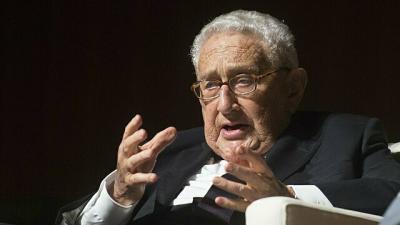


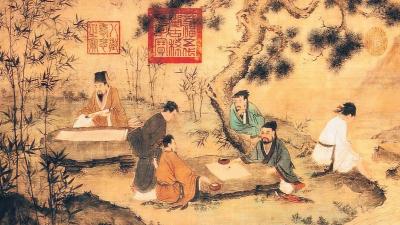

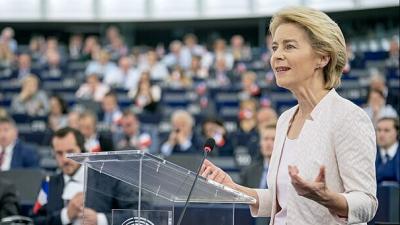

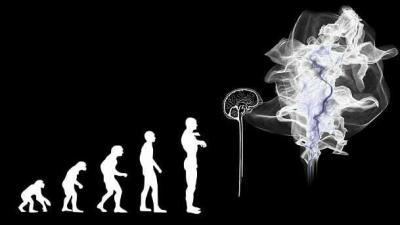

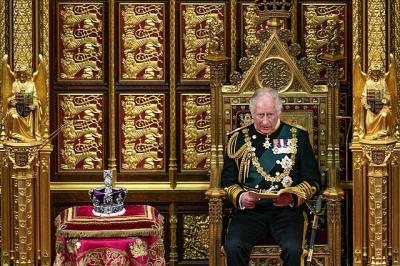

Comments (0)